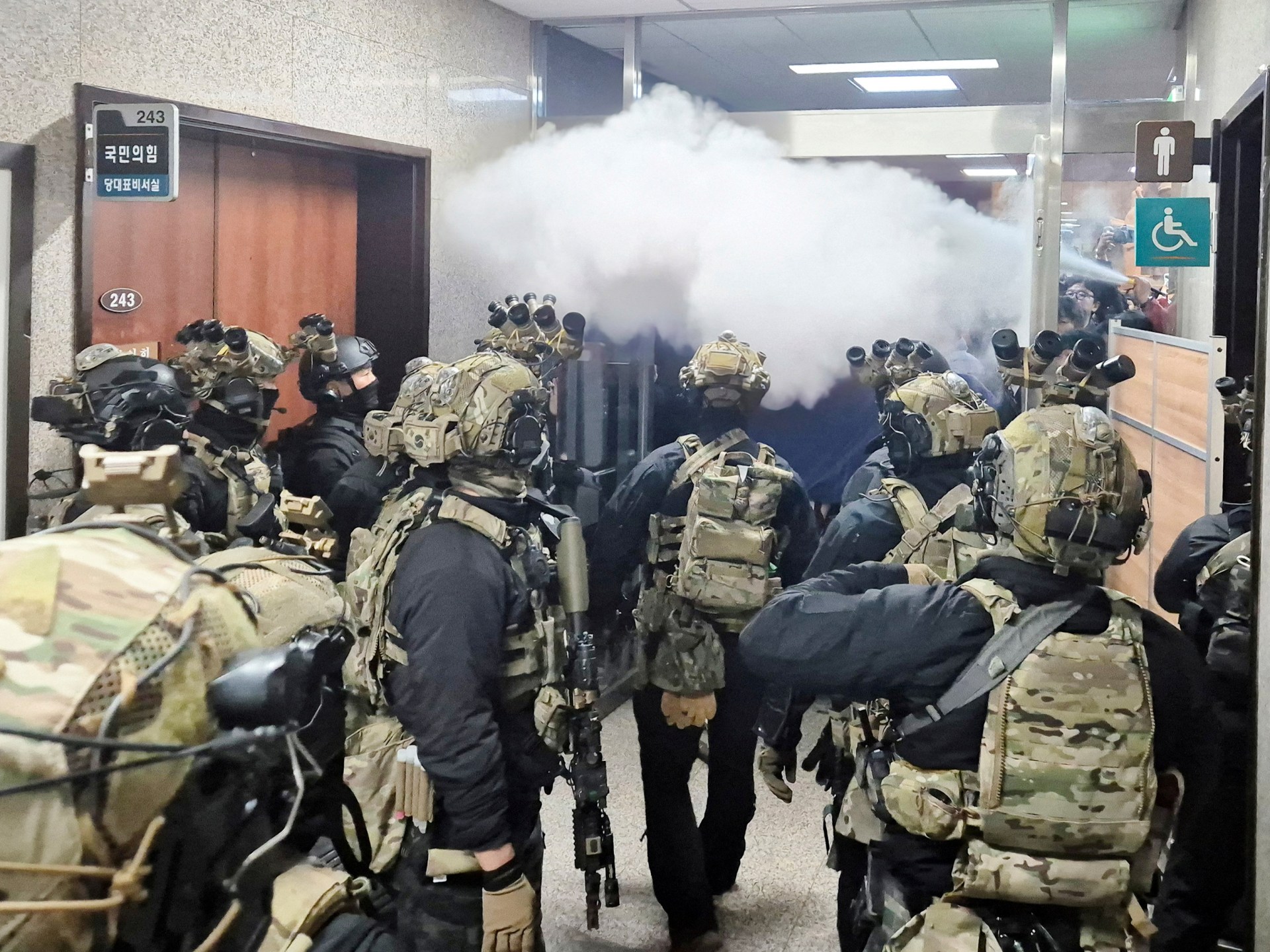Opposition and members of President Yoon Suk Yeol’s own party condemn the move amid low public popularity.
South Korea descended into political turmoil after President Yoon Suk Yeol declared emergency martial law late on Tuesday, saying he was acting to protect the country from “threats” posed by North Korea and accused the opposition of being “antistate forces”
The military, following Yoon’s announcement, announced a series of measures, including prohibitions on all political activities and that all media will be placed under the control of the Martial Law Command.
But just hours later, the parliament, surrounded by protesters and police, voted against the decree.
Here is a timeline of events that led to the martial law announcement:
April 11: Opposition parties romp to victory in elections for the National Assembly, securing more than 60 percent of the 300-seat parliament.
May 9: President Yoon expresses regrets and apologises on behalf of his wife and First Lady Kim Keon-hee, amid accusations that she unlawfully accepted a luxury handbag in 2022.
August 27: Yoon’s government proposes a 677.4 trillion won ($483bn) budget to tackle several challenges including rising health insurance costs and pensions.
October 25: South Korea expresses “grave concern” over Russia’s bid to seal a defence pact with North Korea, which has been accused of supplying troops to Moscow for possible deployment in its war in Ukraine.
November 25: South Korea’s opposition leader and Democratic Party (DP) chief Lee Jae-myung is acquitted on charges that he persuaded a witness to lie in court to understate Lee’s past criminal conviction, in a rare moment of relief from broad legal trouble.
November 26: President Yoon vetoed a bill calling for a special counsel investigation into corruption allegations involving his wife, the third time he rejected the opposition-led bill.
November 29: The opposition slashes approximately 4.1 trillion won ($2.8 billion) from Yoon’s proposed budget plan, cutting the government’s reserve fund and activity budgets for Yoon’s office, the prosecution, police and the state audit agency. Yoon’s governing People Power Party condemns the move as “neutralising the functions of the prosecution, the police and the state audit agency”.
December 2: The main opposition Democratic Party submits motions in the National Assembly to impeach three top prosecutors. The conservatives call it a vendetta against their criminal investigations of Democrat leader Lee, who has been seen in opinion polls as the favourite for the next presidential election in 2027.
December 2: President Yoon’s popularity slides to 25 percent, according to pollster Realmeter.
December 3: Yoon declares emergency martial law, saying he will rebuild a free and democratic country through martial law.











